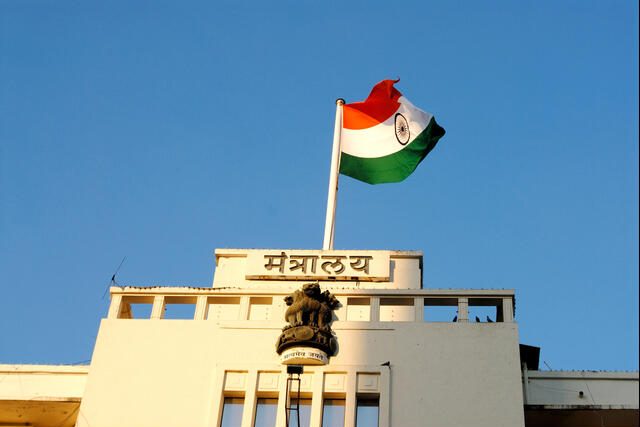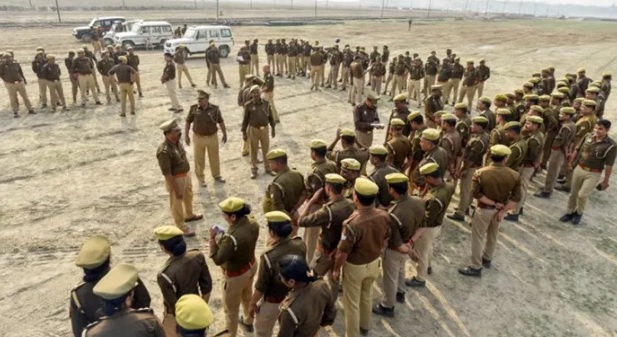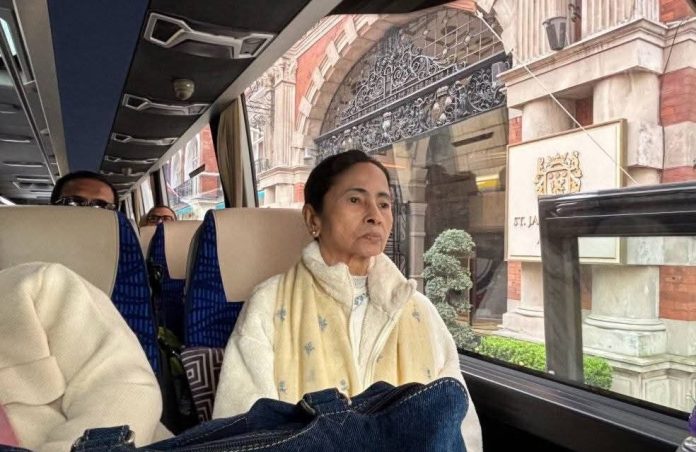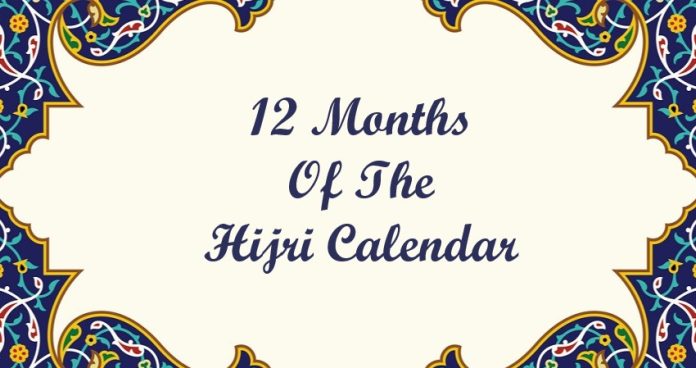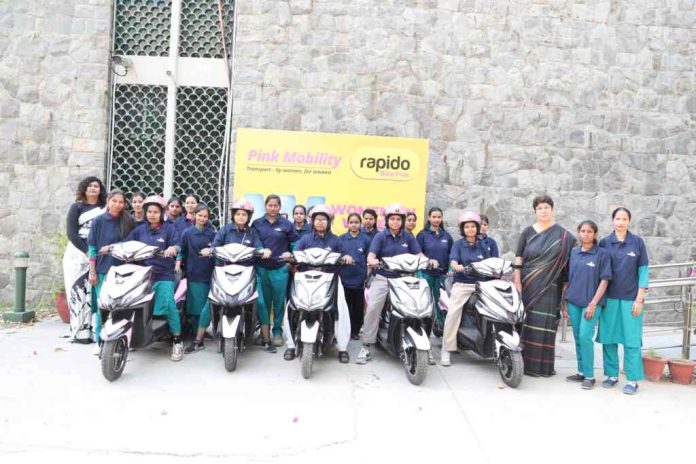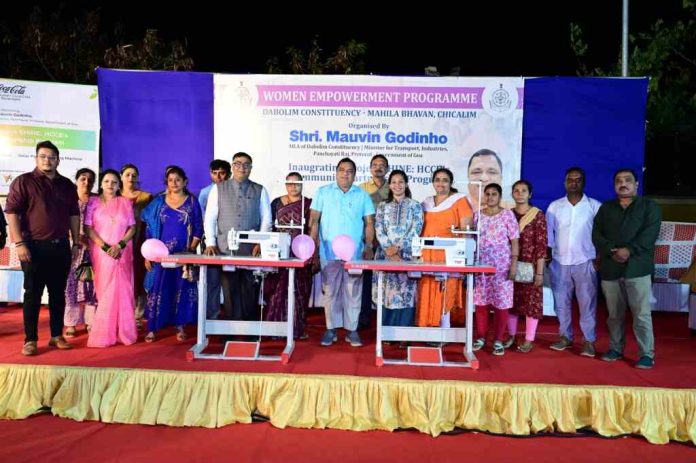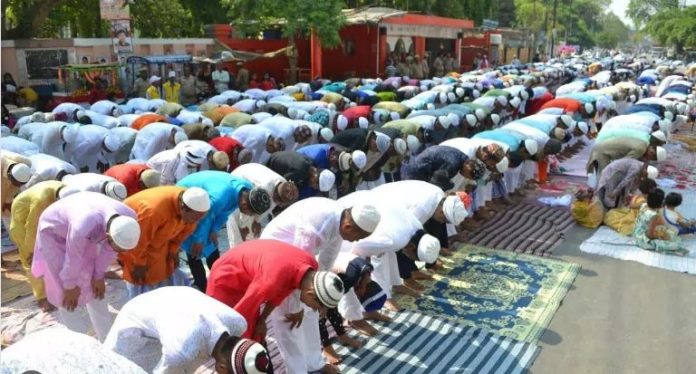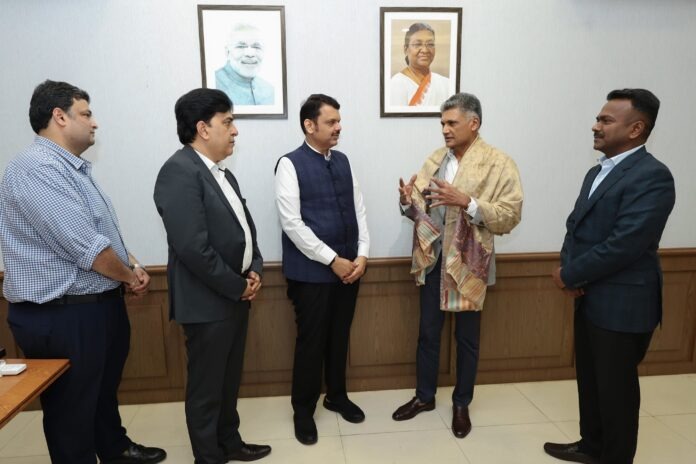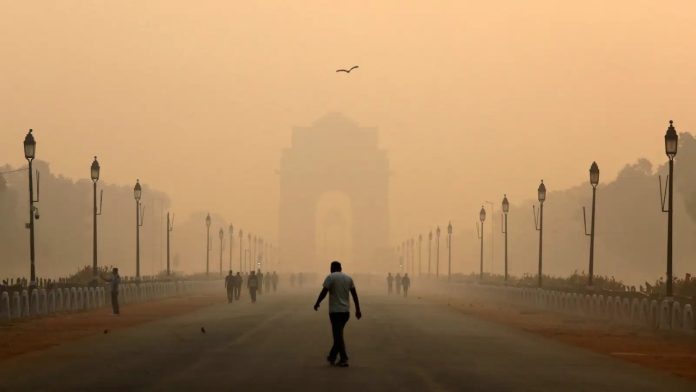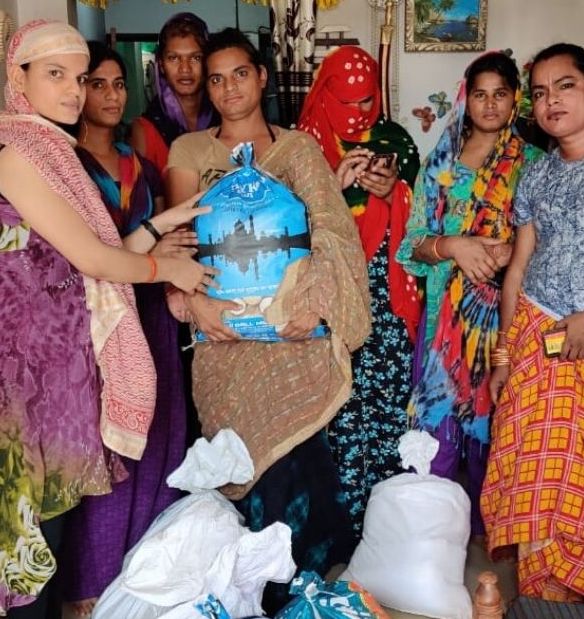Police Vacancy in UP: योगी सरकार जल्द करेगी पुलिस में बंपर भर्ती
Police Vacancy in UP: मुख्यमंत्री योगी आदित्यनाथ बहुत जल्द उत्तर प्रदेश में पुलिस की बम्पर भर्ती करने जा रहे है। उत्तर प्रदेश पुलिस की ये भर्ती अप्रैल और मई महीने से शुरू होगी। अप्रैल और मई में 28,138 पदों पर भर्ती प्रक्रिया शुरू होगी। उत्तर प्रदेश सरकार ने इसी साल मार्च महीने में लगातार साठ हजार से अधिक आरक्षियों एवं रेडियो संवर्ग के चौदह सौ से अधिक पदों पर भर्तियां पूरी की हैं। यह पुलिस भर्तियों को स्ट्रीमलाइन करने एवं भर्ती कैलेंडर को समय करने की दिशा में यूपी पुलिस भर्ती बोर्ड का सुचिंतित एवं सुनियोजित प्रयास है। साथ ही योगी सरकार 8 सालों में करीब साढ़े आठ लाख लोगों को सरकारी नौकरी दे चुकी है। Yogi govt to recruit 28,138 personnel in UP Police soon
Police Bharti in UP: 28,138 पदों की होगी पुलिस भर्ती
उत्तर प्रदेश शासन की मंशा के अनुरूप पुलिस में रोजगार के समस्त उपलब्ध अवसर अभ्यर्थियों को उपलब्ध कराने के लिए भर्ती बोर्ड संकल्पित है। बीते आठ वर्षों में बोर्ड द्वारा विभिन्न पदों पर लगभग दो लाख चौदह हजार (2,14,468) से अधिक भर्तियां पूर्ण कर चुका है। जिनमें चौतीस हजार से अधिक महिलाओं (34,832) की तथा लगभग एक लाख उन्यासी हज़ार (1,79,636) पुरुषों को भर्ती किया गया है। जिनमें उपनिरीक्षक नागरिक पुलिस स्तर के 12,144 पद, प्लाटून कमांडर के 780 पद, आरक्षी नागरिक पुलिस के 1,48,222 पद, आरक्षी पी०ए०सी० के 42,539 पदों पर भर्ती करने के साथ-साथ आरक्षी स्तर के कुशल खिलाड़ियों के 516 पदों की भर्ती भी की गई, जिसमें 178 महिला खिलाड़ियों की भर्ती पूर्ण कराई गई। Uttar Pradesh Police Recruitment
Police Vacancy in UP: 8 सालों में अब तक करीब साढ़े आठ लाख लोगों को मिल चुकी है सरकारी नौकरी
यूपी पुलिस भर्ती बोर्ड ने उत्तर प्रदेश शासन के रोडमैप के अनुरूप आगामी भर्ती प्रक्रिया की रूपरेखा तैयार कर ली है। बोर्ड अप्रैल 2025 के अंतिम सप्ताह या मई 2025 के प्रथम सप्ताह से अभ्यर्थियों से आवेदन पत्र आमंत्रित करने की प्रक्रिया शुरू करेगा। इस भर्ती प्रक्रिया में उप निरीक्षक (नागरिक पुलिस) के 4,242 पद, प्लाटून कमांडर (पीएसी) के 135 पद, प्लाटून कमांडर (विशिष्ट बल) के 60 पद और जनपद बदायूं, लखनऊ व गोरखपुर के लिए महिला पीसी के 106 पद शामिल हैं, जिसके तहत कुल 4,543 पदों पर उप निरीक्षक स्तर की भर्ती की जाएगी। इसके अतिरिक्त, आरक्षी स्तर पर भी विभिन्न पदों के लिए भर्ती प्रक्रिया उसी समय शुरू होगी। इसमें आरक्षी पीएसी, आरक्षी विशिष्ट बल और महिला आरक्षी पीएसी के 15,904 पद, आरक्षी (नागरिक पुलिस) के 3,245 पद, आरक्षी घुड़सवार पुलिस के 71 पद और जेल वार्डन के 2,833 पद शामिल हैं, जिसके तहत आरक्षी स्तर पर कुल 22,053 पदों पर भर्ती होगी। इस तरह, कुल 26,596 पदों पर भर्ती प्रक्रिया निकट भविष्य में प्रारंभ होगी।
Police Vacancy in UP: बीते 8 वर्षों में हुई 2.14 लाख से अधिक भर्तियां, 34,832 महिलाएं भी हुई पुलिस में शामिल
साथ ही, रेडियो सहायक परिचालक के 44 पद और कंप्यूटर ऑपरेटर ग्रेड-ए के 1,153 पदों पर भी भर्ती प्रक्रिया में अग्रिम कार्यवाही अप्रैल-मई 2025 में शुरू की जाएगी। इस प्रकार निकट भविष्य में कुल अठाईस हज़ार से अधिक पदों हेतु विभिन्न पदों पर भर्ती की कार्यवाही इस वर्ष प्रारम्भ की जायेगी। कुशल खिलाड़ी के अन्तर्गत उप निरीक्षक नागरिक पुलिस के 91 पदों व आरक्षी नागरिक पुलिस 372 एवं आरक्षी पीएसी 174 पदों के लिए भी कार्यवाही प्रचलित है। इसमें अप्रैल माह, 2025 के तीसरे सप्ताह से अभिलेखों की संवीक्षा एवं खेल कौशल परीक्षण की प्रक्रिया प्रारम्भ की जायेगी। सभी भर्तियों के संबंध में शीघ्र ही यूपी पुलिस भर्ती एवं प्रोन्नति बोर्ड की वेबसाइट व सोशल मीडिया पर शीघ्र ही अग्रिम सूचना दी जायेगी।
Myanmar Experiences Massive Earthquake, Building collapses in Bangkok
The central part of Myanmar experienced a major 7.7 magnitude earthquake on Friday that triggered broad panic followed by widespread destruction. A severe tremor originated near Sagaing in Myanmar at 12:50 pm local time with its centre located 16 kilometers north-west of town. A subsequent magnitude 6.4 aftershock appeared twelve minutes after the initial tremor thus expanding destruction all across the area.
People Evacuated from Buildings
The massive quake spread tremors that reached Thailand where it affected both Bangkok and Chiang Mai cities. People throughout Bangkok evacuated their buildings hurriedly while being in their pajamas during the earthquake. Harrowing videos captured in the city demonstrate how tall buildings experienced extreme shaking that caused residents to seek protection. An under-construction skyscraper in the Chatuchak area fell during construction while trapping at least 40 workers inside, but authorities confirmed no one lost their life in Thailand.
In Myanmar, the destruction was widespread. The Ava Bridge, an iconic structure connecting the Sagaing and Ava regions, collapsed into the Irrawaddy River. Several buildings in Mandalay, Myanmar’s second-largest city, also crumbled. Videos from Mandalay and other areas show debris scattered on the streets, with residents in a state of shock, many trapped under the rubble. Residential buildings, as well as commercial and historical structures, were heavily damaged.
Footages Spread Throughout Social Media
The damage spread throughout Myanmar to an extreme extent. The Ava Bridge fell into the Irrawaddy River while connecting the Sagaing to the Ava regions. The buildings of Mandalay suffered complete destruction as the second largest city of Myanmar. Visual footage from Mandalay and other cities displays broken debris scattered across streets and reveals residents who remain in disbelief while some individuals attempt to escape from collapsed buildings.
Despite the severity of the situation, no tsunami warnings were issued, and there have been no confirmed reports of widespread casualties at this point. Myanmar’s already fragile healthcare system, especially in its rural areas, is expected to face significant challenges in the coming hours as rescue operations continue.
PM Paetongtarn Shinawatra held emergency meeting
The earthquake’s impact also extended to other regions in Southeast Asia, with tremors felt in China’s Yunnan province. Back in Thailand, several buildings were evacuated, and some metro and rail services in Bangkok were temporarily halted. In response to the crisis, Thai Prime Minister Paetongtarn Shinawatra held an emergency meeting to assess the situation and coordinate efforts for relief and recovery.
As rescue teams in Myanmar begin their search efforts, the true extent of the damage and the number of casualties remains unclear. The quake highlights the region’s vulnerability to seismic activity, particularly along the Sagaing Fault, which has caused significant earthquakes in the past.
पूरा हुआ रोज़ेदारों का इम्तिहान, अब 11 साल सर्दियों में रमजान,
Ramzan: जल्द ही माह-ए-रमजान मुकम्मल होने के साथ-साथ गर्मी में रोजेदारों के सब्र का इम्तिहान भी पूरा हो जाएगा। 2007 से 2025 के बीच 19 साल रोजेदारों ने सूरज की तपिश, उमस भरी गर्मी और लू के थपेड़ों के बीच खुदा की इबादत की। अब आने वाले 11 साल, यानि 2026 से लेकर 2036 तक रमजान का महीना सर्दियों के बीच ही गुजरेगा। 2026 से 2036 तक Ramzan की आमद ठंडे मौसम में होगी। वर्ष 2007 से 2025 तक 19 बार Ramzan का महीना आया। इस्लामिक कैलेंडर का यह पाक महीना पिछले 19 वर्षों में मार्च से सितंबर के बीच गुजरा। इस बीच कभी रोजेदारों का सामना अप्रैल-मई की झुलसा देने वाली तपिश से हुआ, तो कभी जून, जुलाई, अगस्त में पसीने से तरबतर करने देने वाली उमस भरी गर्मी से। मार्च और सितंबर ने भी रोजेदारों का इम्तिहान लिया। इस दौरान मार्च, अप्रैल, मई, जुलाई, अगस्त में तीन-तीन Ramzan गुजरे। दो-दो बार जून और सितंबर में Ramzan की शुरुआत हुई। अब Ramzan का पाक महीना खिसक कर सर्दियों में पहुंचने वाला है। आने वाले 11 साल रोजेदारों के लिए राहत भरे होंगे। मुकद्दस Ramzan की आमद ठंडे मौसम होगी। इसकी शुरुआत 2026 से होगी। यह सिलसिला 2036 तक चलेगा। इस दौरान माह-ए-रमजान दिसंबर, जनवरी, फरवरी की ख़ुशनुमा सर्दियों में आएगा। इसके अलावा अक्तूबर और नवंबर की गुलाबी सर्दी भी रोजेदारों को राहत देगी।
हर साल 10 से 12 दिन पीछे खिसकता है Ramzan
गर्मियों में रोजे रखना कतई आसान नहीं है। जबकि पहले सर्दियों के महीने में रोजे आता थे। गर्मियों में झुलसा देने वाली तपन के बीच 14 से 15 घंटे भूखे-प्यासे रहकर रोजेदार को कड़ी परीक्षा देनी पड़ती है। Africa के कई मुस्लिम देशों में, गर्मियों में तापमान बहुत अधिक होता है। यहां Ramzan के महीने में रोजेदारों की हालत बहुत ही गंभीर हो जाती है। अब सवाल उठता है कि आख़िर Ramzan के बदलते मौसमी दौर की वजह क्या है?
दरअसल, मुस्लिम धर्म में हिज़री ‘Chand Calendar’ को फॉलो किया जाता है। इसे इस्लामी पंचांग भी कहते हैं। इस कैलेंडर में चांद दिखाई देने के अनुसार तिथि तय होती है। इस कैलेंडर में 12 महीने होते हैं और हर महीना अर्ध चंद्र दिखने के साथ शुरू होता है। चंद्र महीना 29 या 30 दिन का होता है, जिससे 1 चंद्र वर्ष या 12 महीने लगभग 354 दिन के ही होते हैं। यानि कि Gregorian Calendar के 365 दिनों की तुलना में Chand Calendar में 11 दिन कम होते हैं। यही कारण है कि इस्लामिक चांद कैलेंडर Gregorian Calendar से हर साल लगभग 11 दिन पीछे चला जाता है। इसके चलते Ramzan के महीने का पहला दिन, इस्लामी कैलेंडर का 9वां महीना, हर साल लगभग 11 दिन पीछे चला जाता है। यही कारण है कि हर 10-11 साल में रमजान का मौसम बदलता रहता हैऔर हर 33 साल में एक मौसमी चक्र को पूरा करता है।
2023 में दो बार मनेगी ईद
मुसलमानों के लिए वर्ष 2030 खास रहेगा। इस साल में रहमत और बरकत का मुबारक महीना रमजान दो बार होगा। एक साल की शुरुआत में दूसरा साल के अंत में। वर्ष 2030 में जनवरी और दिसंबर में Ramzan का आग़ाज़ होगा। वहीं तीन साल बाद वर्ष 2033 में मुसलमानों को दो बार ईद मनाने का मौका मिलेगा। एक ईद जनवरी में होगी तो दूसरी दिसंबर में मनाई जाएगी। Ramzan के मुबारक रोज़े रखने वाले इन दिनों में गर्मी से बेहाल हुए बिना खुशगवार मौसम में खुद की इबादत कर पाएंगे।
Rapido Expands Pink Mobility Nationwide, Championing Women Empowerment and Financial Independence
New Delhi, India: Rapido, India’s largest ride-sharing platform, announced the expansion of its Pink Mobility initiative nationwide to create sustainable earning opportunities for women, championing employment generation, financial independence, and skill development. With a vision to build a sustainable fleet of over 2 lakh women captains across the country within the next three years, Rapido has taken a significant step forward by signing a Memorandum of Understanding (MoU) with two esteemed establishments — Azad Foundation and Sakha Consulting Wings.
To commemorate this milestone, Rapido hosted an event themed EmpowHer: Driving Financial Inclusion and Empowerment at the India International Centre in New Delhi.
The event brought together esteemed thought leaders, including prominent think tank founders, accomplished gig workers, and trailblazing women drivers, all united in their commitment to advancing the cause of women’s empowerment.
The program featured compelling panel discussions and insightful fireside chats, bringing together distinguished speakers such as Srinivas Rao, National Lead at Azad Foundation; Dr. Arpita Mukherjee, Professor at ICRIER; Barsha Chakraborty from Breakthrough; Anjana – the champion driver from Sakha; Meenu Vadera, Founder of Azad Foundation; Sunaina Kumar, Senior Fellow at ORF and Executive Director at Think20 India Secretariat; Bornali Bhandari, Professor at NCAER; and Shweta Aprameya, Founder and CEO of ARTH and Co-founder of HAPPY.
Discussions centred on critical issues such as creating equitable career pathways, addressing safety challenges, and enhancing financial literacy for women in non-traditional industries. These dialogues provided actionable insights and strategies aimed at driving meaningful change and fostering a more inclusive and empowered workforce for women across diverse sectors.
The tripartite Memorandum of Understanding (MoU) between Rapido, Azad Foundation, and Sakha Consulting Wings commits to train underprivileged women in professional driving skills, provide them with employment opportunities, and foster economic empowerment in the transport sector.
Through this partnership, Rapido is committed to:
Creating job opportunities for women drivers through the platform.
Ensuring a fixed monthly earning opportunities up to INR 25,000 for female captains, promoting long-term financial stability.
Supporting trained women drivers with vehicle procurement, registrations, mentorship, safety training, and awareness sessions.
Collaborating with policymakers to address the systemic challenges faced by women drivers through joint initiatives with Azad Foundation and Sakha.
Shravya Reddy, Chief of Staff, Rapido, shared, “We are deeply grateful to the esteemed panellists and guests who joined us today, sharing invaluable insights on breaking barriers, advancing women’s empowerment in mobility, and fostering financial independence. Empowering women is central to Rapido’s mission, and the nationwide expansion of our Pink Mobility initiative reflects our commitment to creating a more inclusive mobility ecosystem. Through our collaboration with Azad Foundation and Sakha, we are dedicated to offering women meaningful employment opportunities and equipping them with the resources they need to succeed. We look forward to expanding access to employment and financial independence for thousands of women across India.”
Meenu Vadera, Founder of Azad Foundation and Sakha, added: “Gender equality and ensuring women are able to realise their human rights is the cornerstone for societal advancement. At Azad Foundation and Sakha, our mission is to enable women empower themselves, gain essential skills and earn sustainable livelihoods with dignity. Our partnership with Rapido reflects a shared commitment to creating an inclusive and equitable mobility sector. Together, we are proud to enable women to achieve financial independence and succeed in non-traditional roles, contributing to a more inclusive future.”
The Azad Foundation is a pioneering NGO dedicated to empowering women through transformative skill education, mentorship, and policy engagement. Its mission is to enhance employability, promote lifelong learning, and facilitate access to sustainable livelihoods. Sakha Consulting Wings, a social enterprise, amplifies this mission by offering safe transport solutions for women and creating employment opportunities as professional drivers, advancing gender equality in the process.
As Rapido celebrates this milestone, it extends heartfelt gratitude to its partners, policymakers, and state governments for their pivotal role in making the launch of the Pink Mobility initiative a success. Rapido aims to scale this initiative beyond this month and launch it in cities across the country, and accordingly invites policymakers, industry leaders, and individuals to join hands in creating a future where every woman has the opportunity to thrive.
With the nationwide rollout of Pink Mobility, Rapido remains committed to creating lasting impact and paving the way for a future where women can thrive—both on the road and beyond.
Disclaimer: This media release is auto-generated. The CSR Journal is not responsible for the content.
CSR News: Minister Mauvin Godinho inaugurates community development initiatives in Goa
Goa, India: Hindustan Coca-Cola Beverages (HCCB), one of India’s leading FMCG companies, has reinforced its commitment to community development in Goa through its flagship CSR program, Project SHINE. These initiatives, which include handing over of sewing machines, installing digital smartboards in schools, providing water filtration units, setting up solar-powered streetlights, and organizing health camps, further HCCB’s mission to empower local communities through sustainable development. Shri Mauvin Godinho, Hon’ble Minister of Transport, Industries, Panchayat, and Protocol, Government of Goa, inaugurated these initiatives at a special event held in Goa, in the presence of local officials, community members, and beneficiaries.
As part of its community development initiative, by targeting SHGs at the grassroots level, HCCB ensures that its support is focused and effective, making a tangible difference in the lives of these women. The company is equipping 50 beneficiaries from Self-Help Groups (SHGs) with industrial grade sewing machines. This effort aims to promote women’s empowerment, livelihood, and entrepreneurial growth by providing them with the necessary skills and tools to earn a sustainable income.
As part of its focus on enhancing education through technology, HCCB has installed digital smartboards in multiple educational institutions, including Government Primary School, Keri; Government Primary School, Charavne; and Keshav Smruti High School and Higher Secondary School, Salcete, South Goa equipping students and supporting teachers in integrating digital tools into their classrooms.
Strengthening access to clean drinking water, HCCB has installed RO water filtration units at key community and public spaces, including Keshav Smruti Bal Vikas High School, Upasnagar; Wealth Out of Waste (WooW) Waste Management Plant at Chicalim in Industrial Estate; and Joggers Park, Chicalim, Dabolim. These filtration units ensure that students, workers, and residents have access to safe and purified drinking water.
In alignment with its commitment to clean energy and sustainable infrastructure, HCCB has installed solar-powered streetlights and solar panels at Joggers Park, Chicalim, and solar panels at Wealth Out of Waste (WooW) enhancing visibility and security in public spaces.
Recognising the importance of healthcare accessibility, HCCB has conducted health camps at PM Shri L.H.B.D Government High School, Thane Sattari, Goa, and Chicalim Joggers Park, Chicalim Dabolim, South Goa, providing essential medical checkups and wellness awareness programs for the local population.
Through Project SHINE, HCCB remains actively engaged in skill development training for women and youth, as well as digital and financial literacy programs. To date, HCCB has positively impacted over 20,000 individuals across Goa through its various CSR initiatives.
Speaking at the event, Shri Mauvin Godinho, Honorable Minister of Transport, Industries, Panchayat, and Protocol, Government of Goa, said, “I commend Hindustan Coca-Cola Beverages for their strong commitment to community development in Goa. By investing in digital smartboards, clean drinking water initiatives, and skill training programs, HCCB is making a real difference in people’s lives. Their efforts align with our government’s vision for a prosperous Goa and demonstrate the positive impact that can be achieved through effective public-private partnerships. I look forward to their continued contributions.”
Himanshu Priyadarshi, Chief Public Affairs, Communications, and Sustainability Officer, HCCB, added, “. At HCCB, we are committed to investing in the communities we serve. Our initiatives in Goa focus on empowering local communities through education, clean water, and skill development. We believe that by supporting the development of these communities, we can help create self-reliant and empowered communities and contribute to a brighter future for all. We appreciate the support of the government and look forward to continuing our collaborative efforts to drive positive change.”

